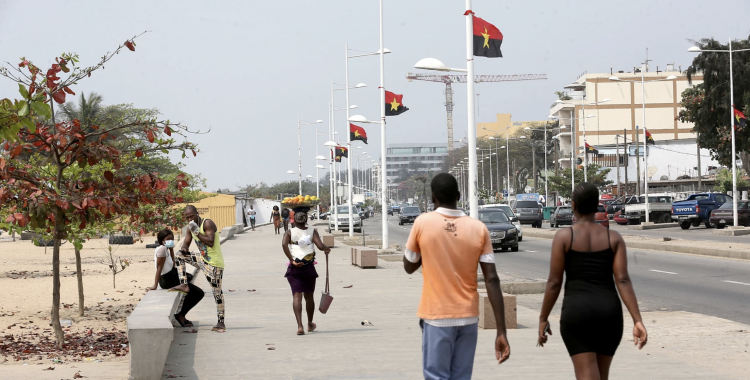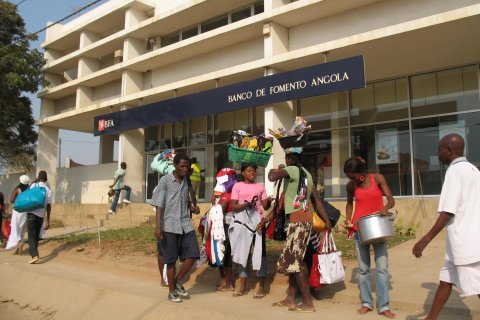In the report on sub-Saharan Africa, released this Friday within the scope of the Annual Meetings of the IMF and the World Bank, taking place this week in Washington, the Fund presents several macroeconomic projections for the countries in the region, predicting that Angola will register a significant decline in consumer prices, which dropped from 21.4 percent last year to 11.7 percent this year and 10.8 percent on average next year.
With regard to public debt, the IMF anticipates a reduction in the ratio of this indicator to GDP, forecasting that it will improve from 67 percent, in 2022, to 63.3 percent this year and 59.2 percent in 2024, after having reached a peak of 138.9 percent in 2020, in a context of devaluation of the kwanza and economic recession mainly motivated by the pandemic and the reduction in the international price of oil.
The IMF argues that sub-Saharan African countries must improve financial management, contain inflation, allow exchange rate adjustments and ensure that climate change does not divert funds from basic expenses.
In the report on the region, released this Friday within the framework of the Annual Meetings of the IMF and the World Bank, taking place this week in Washington, the Fund lists four priorities for African governments to try to overcome macroeconomic imbalances in a context of limitations in financing.
"Consolidating public finances and strengthening public financial management in a context of difficult financing conditions will depend on continuous mobilization of resources, better management of budgetary risks and debt management that must be more proactive", write the Fund's experts in the report, which forecasts growth of 3.6 percent for sub-Saharan Africa this year and 4.2 percent in 2024, and which is titled 'The Big Financing Squeeze'.
The second of the four priorities has to do with inflation, which rose to 105 last year and is expected to slow to around half this year: "Monetary policy has to be cautiously steered until inflation is firmly on a downward path and in line with the central bank's goals," the report reads.
Allowing the exchange rate to float, while mitigating adverse effects on the economy, "including rising inflation and debt due to currency depreciations," is the third priority task for governments in sub-Saharan Africa, a region where the IMF it has more than 20 ongoing financial assistance programs, almost half of the total for the 54 countries in the region.
Climate finance is the last of the priority areas for action, in which the IMF argues that "climate change and financing to combat and mitigate it should not keep spending on basic needs", exemplifying with health and education.
COUNTRY .....................GDP................INFLATION..................DEBT/GDP RATIO
Angola............................3.5...................11.7..............................63.3
Cape Verde......................4,4......................4,5............................120.2
Guinea-Bissau................4.5........................5.0.............................76.5
Equatorial Guinea..........-1.8.......................5.7..............................26.4
Mozambique..................5.0.......................7.4..............................102.8
Sao Tome and Principe...2.0.......................17.9.............................54.8
Region average..............3.6......................14.0..............................55.5
Source: SSA Regional Economic Outlook, April 2023







